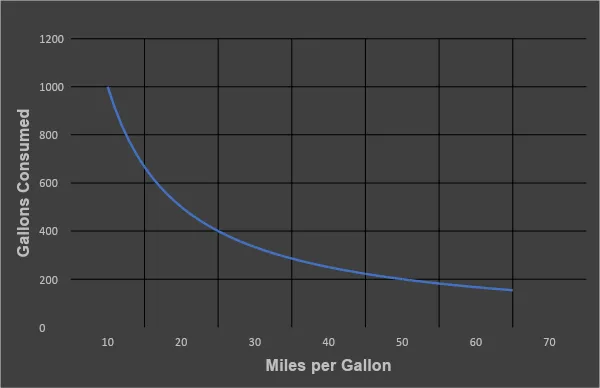
The Greener Option in Trucking that Few Know About
As a Broker or Shipper, you may be weighing multiple priorities when deciding which way to best ship your freight:
- Will freight be delivered reliably and in good condition?
- Will freight be delivered on time, and how reliable is that timing?
Energy Efficiency Is A Priority
Those are two primary considerations. However, shipping is nuanced, and in today’s world, you may be considering an important third factor: The environment.
https://ourworldindata.org/grapher/global-co2-fossil-plus-land-use?country=~OWID_WRL
In 2021, The Global Carbon Project showed that annual Carbon emissions grew to over 35 billion tons annually, with the United States accounting for 4.7 billion tons. That is over 5 times annual emissions in the 1950s.
Although the United States has taken steps to reduce carbon emissions, decreasing from 6.1 billion tons annually since 2007, many organizations continue to see the value and importance of reducing our overall climate impact.
Understanding the Metrics
When thinking about the carbon footprint of your freight, there are a few parameters we can use to discuss energy consumption as it relates to fuel:
- Miles-Per-Gallon This term is commonly used and refers to miles driven per gallon. A Semi-Truck runs between about 6 MPG to 9 MPG depending on freight load, while a Sprinter Van or Cargo Van averages 21 MPG.
- Gallons-Per-Mile This term is less-commonly used, but is more useful in that it does not exaggerate efficiency benefits.
- For example, over 10,000 miles traveled, a 20 MPG vehicle saves 500 gallons when compared to a 10 MPG Truck.
- However, though 40 MPG is “twice” as efficient as a 20 MPG car, a 40 MPG vehicle only saves an extra 250 gallons over the same distance when compared to a 20 MPG vehicle. (See Chart Below)
- By instead using Gallons-Per-Mile, we have a clear view of relative efficiency between modes of transport.
Freight-Ton Efficiency This term is used in the trucking industry to address the question of the impact of weight on fuel efficiency. It is perhaps the most useful to us.

Semi-Trucks versus Cargo Vans
As mentioned earlier, A Semi-Truck runs between about 6 MPG to 9 MPG depending on freight load, while a Sprinter Van or Cargo Van averages about 21 MPG. But what does this mean in practical terms?
In the example of a 500-mile trip, a truck carrying 19 tons (Typical for a Tractor-Trailer) will consume about 75 gallons of diesel. However, as you begin lightening that load, you do not gain enough efficiency to bring a truck even close to a Cargo Van’s 20 MPG.
The following chart estimates the amount of fuel burned by each vehicle type as it nears ½ tons.
What about LTL?
While trucks may mitigate this problem by carrying LTL (Less-Than-Truckload) shipments and gaining efficiencies of scale, it does mean that your package will travel to out-of-the-way destinations, adding mileage.
It is also worth noting that shipping LTL carries an increased risk to a shipper’s top priorities: Reliability and Timeliness. Reliability, because shipments traveling LTL are loaded and unloaded at various transition points between trailers and warehouses. This, in turn, results in a very real risk of loss or damage. Timeliness, because different LTL shipments need to be combined together to form a full load before they proceed to delivery. This can and does result in delays.
By contrast, Expedite All offers Cargo-Van, Box Truck, and Straight-Shot delivery options that are tailored for smaller loads, deliveries without consolidation, and without the speed limit of a semi-truck.
The Bottom (Green) Line
In the world of transportation, brokers, and shippers weigh a variety of factors. If environmental impact is a priority for you and your organization, consider shipping with Expedite All. Contact us to learn more about how we can p
You May Be Interested In
One Size Does Not Fit All: Right-Sizing Your Shipping Solution
The right-sizing dilemma for shipments that fall in the gap between FTL (Full Truckload) and LTL (Less than Truckload) has been one of the prevailing inefficiencies in the trucking industry. The tendency to employ oversized shipping options for smaller cargo not only leads to increased costs but also contributes to a larger carbon footprint.
How to Expedite and Recover LTL Freight Efficiently
Sharing a truck’s space isn’t the best idea when your goal is rapid delivery, making less-than-truckload (LTL) shipping annoyingly slow. However, slow speed is only part of the problem. LTL freight is accompanied by plenty of challenges, running the gamut from a high risk of damage or loss and complex coordination to a lack of […]